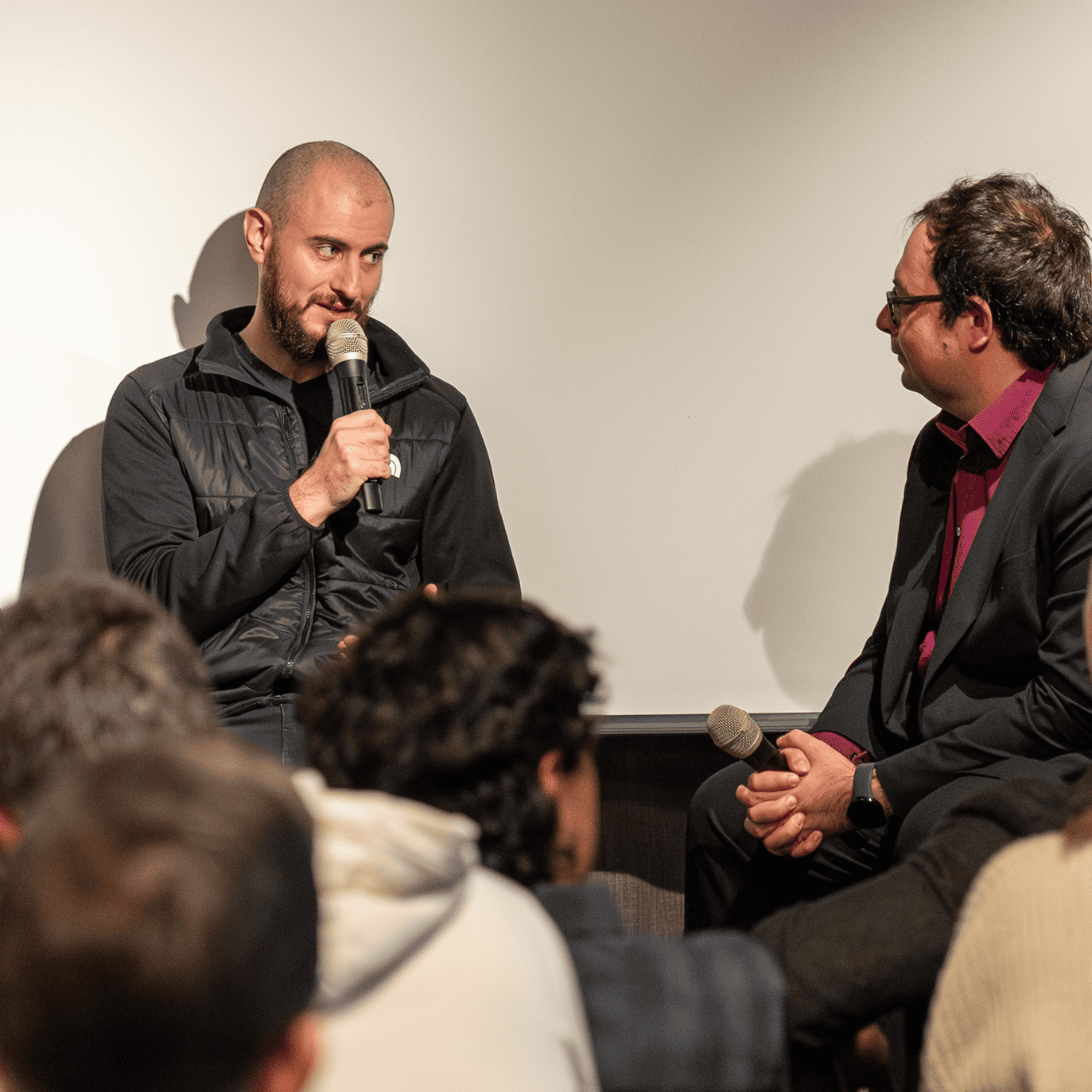The Future of Intelligence: How Decentralized AI Could Power the Agent Economy
Here at CV Labs, we believe that the future of intelligence won’t be owned, but shared. To kick off the CV Labs Tech Series, our first block is dedicated to the evolving world of decentralized AI.
We began our exploration at the CV Labs HQ in Zug, where over 50 attendees heard insights from experts across AI, crypto, and zero-knowledge infrastructure to unpack one of the most pressing questions in tech today: Can intelligence scale without central control? Here’s what we uncovered.

What Even Is Decentralized AI?
It sounds buzzy, maybe even a little overhyped. But when you strip it back, decentralized AI is about one thing: taking intelligence out of the hands of a few and distributing it across networks that anyone can build on.
Decentralized AI reduces the control of data, transparency, and computing power of one centralized entity. Using the power of blockchain technology, decentralized AI aims to distribute ownership and governance of models and increase transparency and accessibility.
Not every project needs full-stack decentralization. Rico Müller, principal at cyber•Fund acknowledged that "AI is a very centralized technology, and crypto can add value by introducing trust guarantees."
Rico believes that even partial decentralization, like running models locally or verifying data off-chain, can add value, transparency, ownership, and composability to AI systems. And that’s the real point: giving power back to users, creators, and communities.

ZK Proofs, Off-Chain Data, and the “Trust Layer”
Provably’s Co-Founder & CEO, Shyam Duraiswami, laid it out simply: AI wants data, but data owners want privacy. Shyam highlighted that “private data is the next goldmine for AI. Whoever figures out how to unlock it securely will lead the next wave.”
This is where zero-knowledge proofs come in. A massive 99.99% of the world's data is stored off-chain. Provably's solution allows this data to be verified, trusted, and utilized by AI models, all without revealing the actual information.
The focus isn't on decentralization just for the sake of decentralization. It's about building AI systems that are inherently trustworthy. Bitcoin Suisse’s Wolfgang Amadeus Vitale believes that zero-knowledge proofs truly are what brings transparency to the forefront, arguing that “Zero-knowledge proofs are the backbone of verifiable AI. Without them, trust is a black box". When we start expecting this level of verifiability as the norm, we can move away from opaque “black box” systems and towards a collaborative model built on proof.

The Agent Economy Is Already Happening
Autonomous agents aren’t sci-fi. They’re already booking flights, managing investments, and triggering transactions. The shift isn’t coming. It’s here.
But if agents are doing deals, who handles the disputes? Who owns the value they create? That’s where Web3 kicks in. Think: decentralized court systems for agents, agent-to-agent protocols, and identity frameworks that don’t rely on centralized servers.
The Agent Economy will need more than GPUs. It needs governance. Incentives. Interoperability. CV Labs is already seeing the first wave of infrastructure startups solving for that.
Predictive AI in the Investment Realm
Looking at the potential of AI technologies in the investment space, Aisot Technologies and Stefan Klauser’s team are democratizing access and empowering a much broader range of investors.
Stefan was quick to point out that predictive AI is the future of creating efficient investment strategies, arguing that “The investment industry is only starting to understand the power of predictive AI. Without it, many firms won’t be able to compete."

Aisot Technologies' AI-driven investment tool provides predictive analytics and real-time modeling that can assist investors in navigating market volatility, optimizing asset allocation, and gaining a competitive edge. Although traditionally this type of modeling has been reserved for large hedge funds, Aisot’s tools are poised to revolutionize the investment landscape, democratizing access and empowering a much broader range of investors.
Crypto Walked So Generative AI Could Run
Forget the narrative that crypto is playing catch-up to AI. Many of the foundational issues AI faces today, such as data silos, model trust, and permissioned access, are problems crypto already solved.
ZK technology, decentralized compute, cryptographic identities, token-based incentive systems: these aren’t bolt-ons. They’re baked into the next era of intelligent, autonomous systems.
So, What's Next?
Here are the potential roads we see decentralized AI heading down in the world of Web3 at CV Labs:
- Verifiability becomes the default, not the exception.
- Agents become everyday tools, not just experiments.
- Private data becomes monetizable and composable.
- Marketplaces for models replace App Stores.
- Decentralized governance becomes as important as throughput.
This isn’t about waiting for artificial general intelligence (AGI). It’s about building useful intelligence that works for humans, not just corporations.
Final Take
The Agent Economy is coming fast. Whether it’s powered by tokenized data rails or trustless model marketplaces, one thing is clear: the future of intelligence isn’t centralized. It’s decentralized. And it’s already here.
Want more insights from the edge of AI and Web3? Join us at our upcoming webinars & events exploring the future of decentralized AI:
- April 29 | AI Breakfast ‘Forecasting Biological Drought Indicators in Swiss Forests’ with Dr. Jan Svoboda, Data Scientist at Swiss Federal Institute for Forest, Snow and Landscape Research WSL - https://lu.ma/3weshqx5
- April 29 | Decentralized AI Webinar - https://lu.ma/smjf4hai
- May 27 | AI Breakfast ‘End-to-End AI Landscape’ with René Raeber, CTO at Microsoft Switzerland - https://lu.ma/7m8ds6qh
- June 24 | AI Breakfast ‘Level Unlocked: Enterprise Scale AI Enablement at Thomson Reuters’ with Stavroula (Laura) Skylaki, VP, AI Platform at Thomson Reuters - https://lu.ma/yb8n905s




%20(1).jpg)
.jpg)
%20(1).jpg)